In today’s digital age, customers expect seamless experiences across multiple platforms, whether they’re shopping online, in-store, or through mobile apps. Omnichannel marketing provides startups with the opportunity to engage customers across all these touchpoints, creating a consistent and integrated experience. This approach not only helps in building brand loyalty but also improves customer retention and increases sales. In this article, we’ll explore the key elements of omnichannel marketing, how startups can implement it effectively, and practical tips to engage customers across platforms.
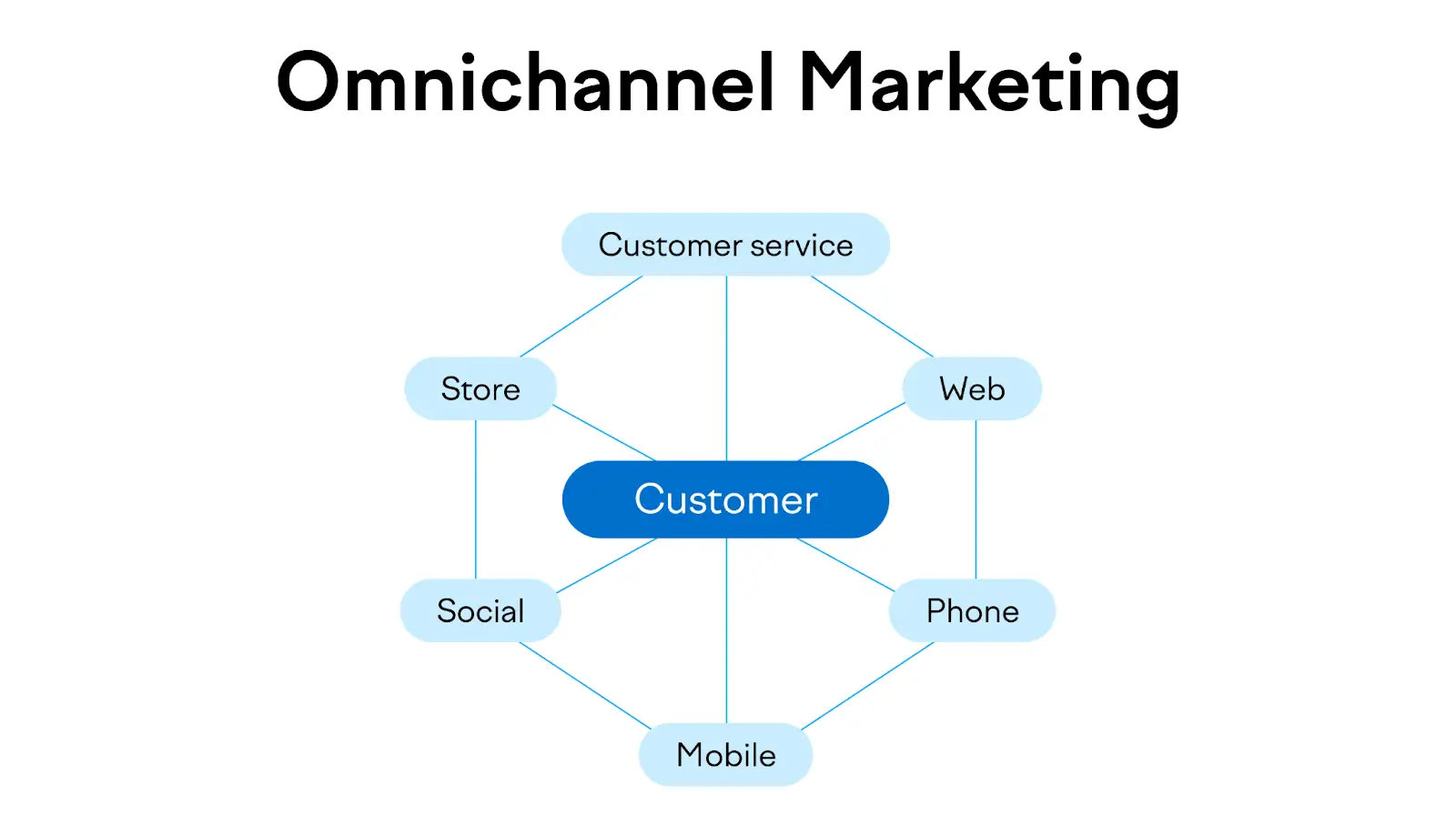
What is Omnichannel Marketing?
Defining Omnichannel Marketing
Omnichannel marketing refers to the strategy of creating a seamless customer experience across all channels, both online and offline. Whether customers interact with a brand through social media, a website, an app, email, or a physical store, the goal is to provide a unified experience that ensures consistency in messaging, branding, and user experience.
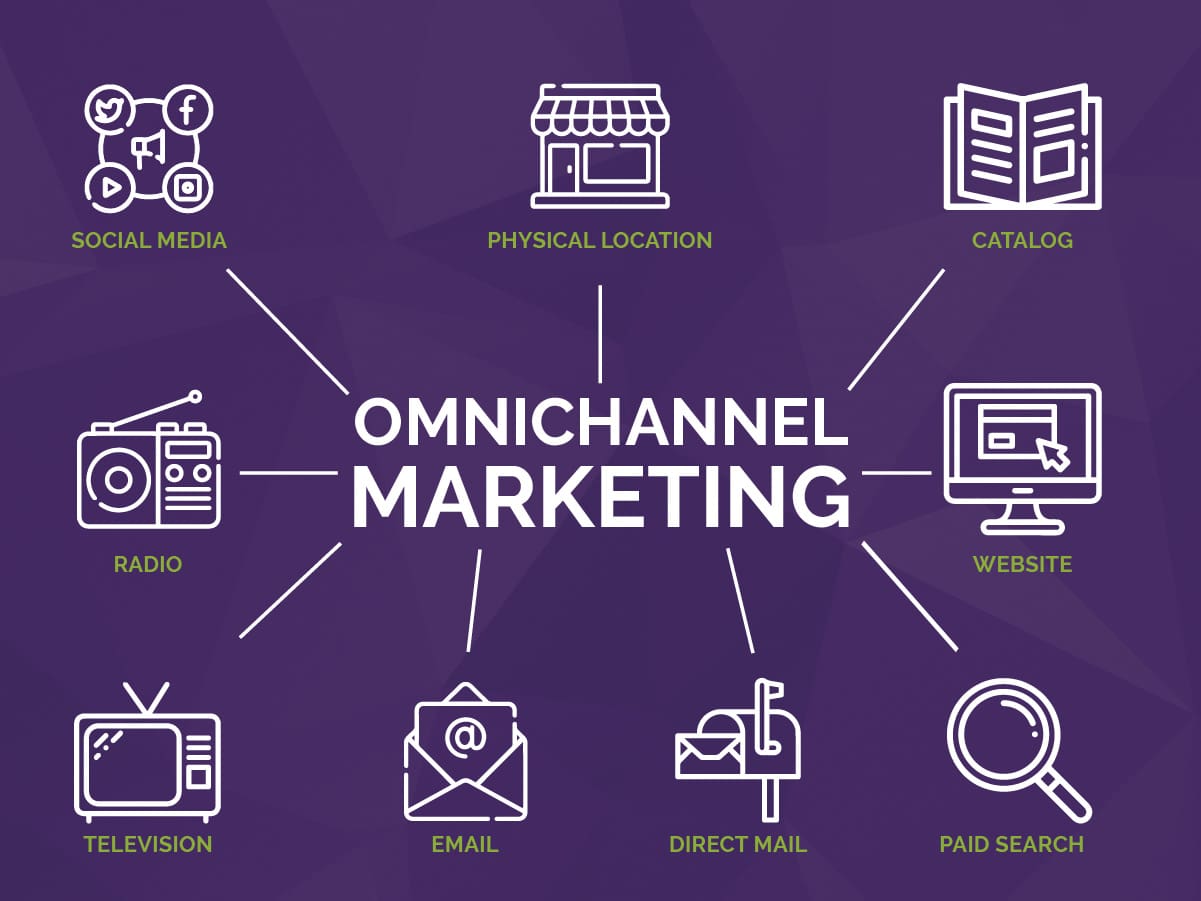
Why Omnichannel Marketing is Essential for Startups
Startups face unique challenges, including building brand awareness, acquiring customers, and driving growth. Omnichannel marketing offers several advantages:
- Increased Customer Engagement: By reaching customers on the platforms they use most, startups can engage them more effectively.
- Stronger Brand Loyalty: Consistent experiences across channels help build trust and loyalty.
- Improved Customer Insights: Tracking customer interactions across multiple platforms gives businesses deeper insights into their preferences and behaviors.
1. Understanding the Customer Journey
Why Mapping the Customer Journey is Critical
Before implementing an omnichannel marketing strategy, it’s essential to understand how customers interact with your brand across various channels. Mapping the customer journey helps identify touchpoints where customers engage with your brand, from discovery to purchase and beyond.
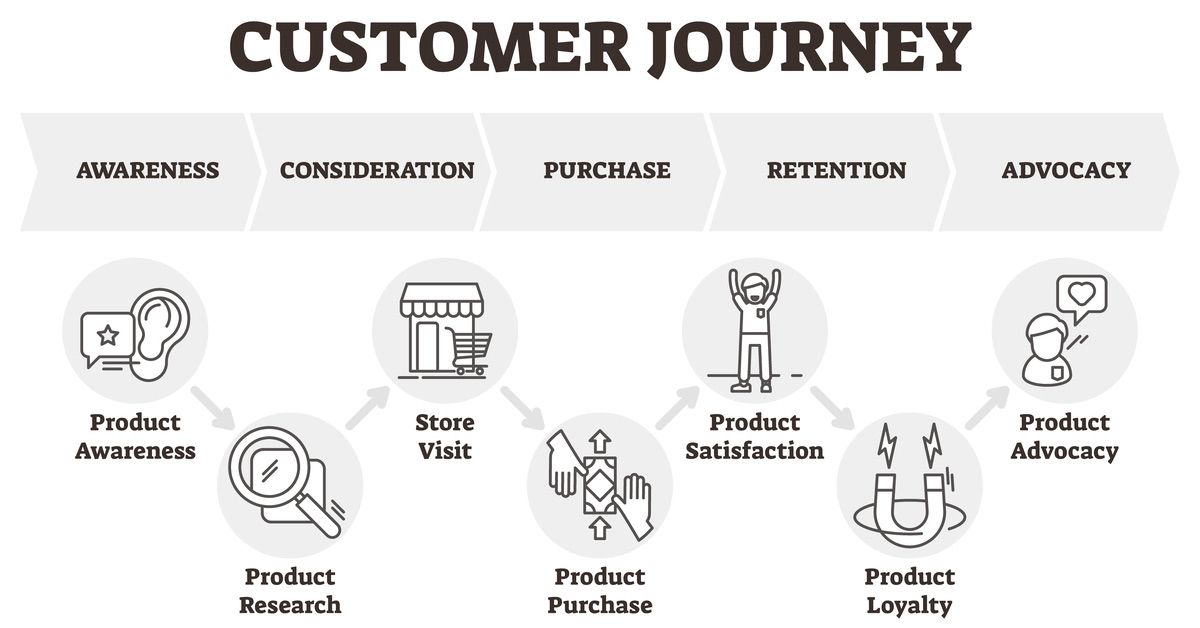
How to Map the Customer Journey
- Identify Key Touchpoints: Determine where customers interact with your brand (e.g., website, social media, email).
- Track Customer Behavior: Use analytics tools like Google Analytics or HubSpot to track how customers move through the buying process.
- Identify Pain Points: Look for areas where customers may experience friction or drop off, and optimize those touchpoints to improve the experience.
2. Creating Consistent Messaging Across Channels
The Importance of Consistency in Omnichannel Marketing
Consistency is a cornerstone of omnichannel marketing. Customers should receive the same messaging, branding, and tone of voice whether they’re interacting with your brand on Instagram, your website, or in-store. Inconsistent messaging can confuse customers and weaken brand loyalty.
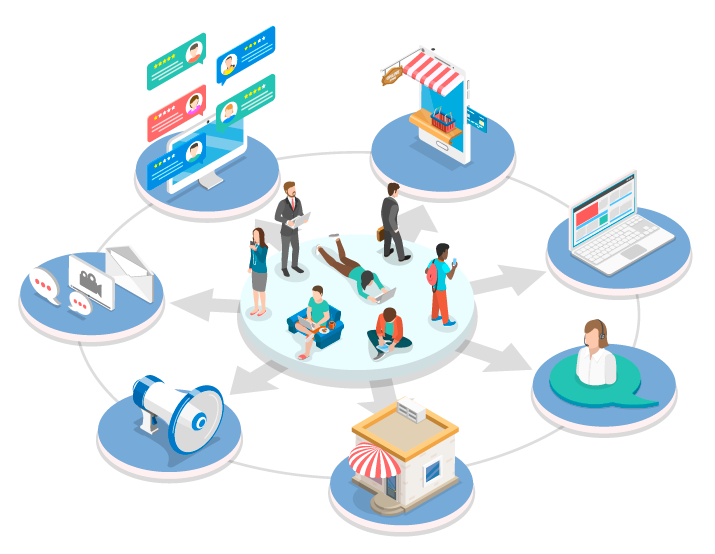
Tips for Creating Consistent Messaging
- Develop a Brand Style Guide: Outline your brand’s voice, tone, and messaging guidelines to ensure consistency across all platforms.
- Unified Visual Identity: Use the same color schemes, fonts, and logos across all marketing materials and platforms.
- Align Campaigns Across Channels: Ensure that promotional campaigns, product launches, and announcements are coordinated across all channels, from email marketing to social media.
3. Personalizing the Customer Experience
Why Personalization is Key in Omnichannel Marketing
Customers today expect personalized experiences tailored to their preferences, needs, and behaviors. Personalization not only enhances customer satisfaction but also increases the likelihood of conversion and repeat purchases.

How to Implement Personalization
- Use Customer Data: Leverage customer data from all channels to create personalized recommendations, offers, and content.
- Segment Your Audience: Divide your customer base into segments based on their behavior, demographics, and preferences to deliver more relevant messages.
- Dynamic Content: Use dynamic content in emails, websites, and ads that adapts to each user based on their past interactions with your brand.
4. Integrating Online and Offline Channels
Bridging the Gap Between Digital and Physical Experiences
For many startups, especially those with both an online and offline presence, integrating these two worlds is crucial for a seamless omnichannel experience. Customers may research a product online and then visit a store to purchase, or vice versa. Ensuring that both online and offline channels work together creates a cohesive brand experience.
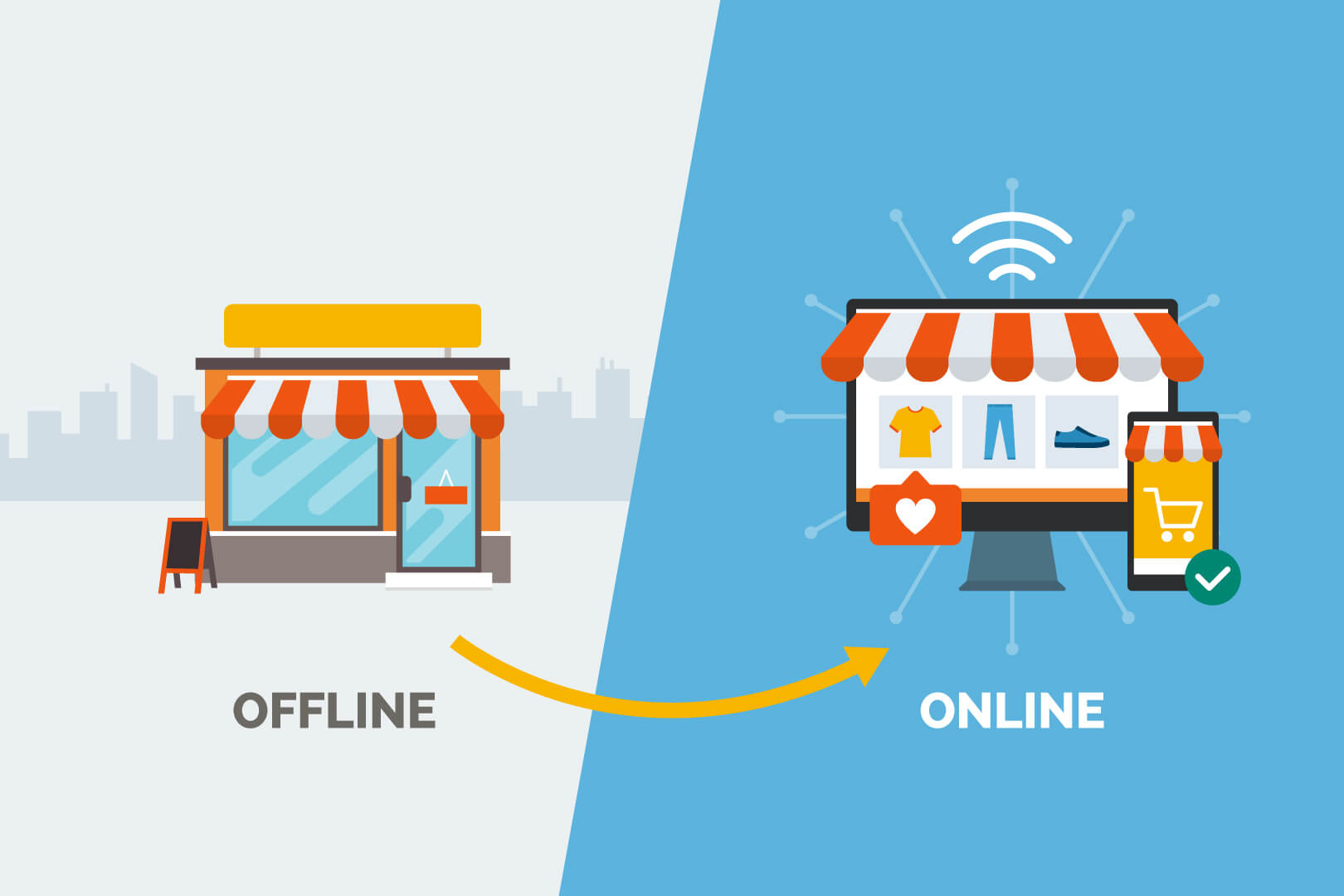
How to Integrate Online and Offline Channels
- Click-and-Collect: Allow customers to buy products online and pick them up in-store, bridging the gap between digital and physical shopping.
- In-Store Mobile Integration: Use mobile apps to enhance the in-store experience, allowing customers to access product reviews, inventory status, and personalized offers.
- Track Cross-Channel Purchases: Use customer relationship management (CRM) systems to track customer purchases across all channels and provide a more comprehensive view of customer behavior.
5. Utilizing Data and Analytics for Omnichannel Marketing
The Role of Data in Omnichannel Success
Data plays a critical role in understanding how customers interact with your brand across channels. By gathering and analyzing data, startups can optimize their marketing efforts, personalize the customer experience, and make data-driven decisions.

How to Leverage Data for Omnichannel Marketing
- Use Cross-Channel Analytics Tools: Invest in analytics platforms like Google Analytics 360, HubSpot, or Salesforce to track customer interactions across multiple channels.
- Monitor Key Metrics: Track metrics such as customer lifetime value (CLV), return on ad spend (ROAS), and customer retention rates to gauge the effectiveness of your omnichannel strategy.
- Optimize Based on Insights: Use data insights to make adjustments to your marketing efforts, improve weak touchpoints, and capitalize on high-performing channels.
6. Embracing Emerging Technologies in Omnichannel Marketing
Why Technology is Revolutionizing Omnichannel Marketing
Emerging technologies such as artificial intelligence (AI), machine learning, and chatbots are transforming how brands engage with customers. Startups can leverage these technologies to enhance the omnichannel experience, automate processes, and improve personalization.

How to Use Emerging Technologies for Omnichannel Marketing
- AI-Powered Chatbots: Use AI-driven chatbots to provide 24/7 customer support, answer questions, and guide users through the buying process on your website or mobile app.
- Machine Learning for Personalization: Machine learning algorithms can analyze customer data to deliver personalized recommendations, improving the relevance of your marketing efforts.
- Augmented Reality (AR): For startups in industries like retail or home décor, AR can allow customers to virtually “try on” products or see how they would look in their homes, enhancing the online shopping experience.
Expert Insights on Omnichannel Marketing
Case Study: Sephora’s Omnichannel Strategy
Sephora, a global beauty retailer, has mastered the art of omnichannel marketing by seamlessly integrating its online and offline experiences. Sephora’s app allows customers to virtually try on products, access personalized recommendations, and view their purchase history. In-store, customers can use the app to scan products for reviews and additional information, creating a seamless experience from digital to physical.
Future Outlook: The Evolution of Omnichannel Marketing
1. Increased Focus on Customer Privacy
As data privacy regulations become more stringent (e.g., GDPR and CCPA), startups will need to be more transparent about how they collect and use customer data. Moving forward, balancing personalization with privacy will be key to maintaining customer trust.
2. Voice Search and Omnichannel
With the rise of smart speakers and voice assistants, voice search is becoming a new frontier for omnichannel marketing. Startups will need to optimize their content and products for voice search to remain competitive in this evolving landscape.
3. Seamless Payment Solutions
Innovations in payment technology, such as mobile wallets and buy-now-pay-later options, will further enhance the omnichannel experience. Startups can integrate these payment solutions across online and offline channels to offer customers more flexibility and convenience.
Practical Tips for Implementing an Omnichannel Marketing Strategy
1. Start with One or Two Channels and Scale
For startups, it’s important to focus on a few key channels before expanding. Master the customer experience on those platforms, then gradually integrate others to avoid overwhelming your team or budget.
2. Use Customer Feedback to Refine Your Strategy
Regularly gather feedback from customers to understand where your omnichannel strategy can be improved. Use surveys, reviews, and social media interactions to identify pain points and areas of success.
3. Keep Testing and Optimizing
Omnichannel marketing is an ongoing process. Continuously test different strategies, campaigns, and touchpoints to optimize the customer experience and maximize engagement.
Conclusion
Key Takeaways
For startups, embracing omnichannel marketing is no longer optional—it’s essential. By understanding the customer journey, creating consistent messaging, and integrating online and offline channels, startups can provide a seamless experience that builds brand loyalty and drives growth. Leveraging data, personalization, and emerging technologies will further enhance your omnichannel strategy, helping you stay competitive in an increasingly digital world.
Final Thoughts
Omnichannel marketing requires thoughtful planning, consistent execution, and a commitment to continually improving the customer experience. Startups that succeed in implementing a well-rounded omnichannel strategy will not only stand out in the market but also foster deeper connections with their customers.
FAQs
What is omnichannel marketing?
Omnichannel marketing is a strategy that integrates multiple platforms—both online and offline—to create a seamless, cohesive customer experience.
Why is omnichannel marketing important for startups?
Omnichannel marketing helps startups engage customers across platforms, build brand loyalty, and gather valuable insights into customer behavior.
How can I create a consistent omnichannel experience?
Consistency in messaging, branding, and customer interactions is key. Develop a brand style guide and use the same visual elements and tone across all platforms.
What technologies are driving omnichannel marketing?
AI, machine learning, chatbots, and augmented reality are emerging technologies that enhance personalization and automate customer interactions.
How can data improve my omnichannel marketing strategy?
Data provides insights into customer behavior, helping you personalize experiences, optimize marketing efforts, and track performance across channels.








